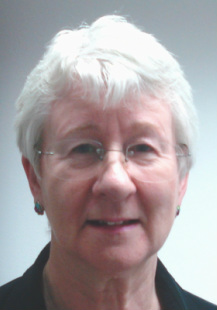
C5P5A5*
by
Julie Hay

C5P5A5 is a donkey bridge for understanding and monitoring group processes, developed from an original idea by Landy Gobes (1993). Using PAC catches the attention of people who are familiar with Parent, Adult and Child as the names of ego states. In this case, the PAC stand for:
C5 - Context, Contact, Contract, Content, Contrasts
P5 – Paradigms, Personal, Professional, Psychological, Parallel
A5 - Autonomy, Authentic, Alternatives, Aims, Actions
Note that although this model suggests aspects of process in an approximately chronological order, it is not proposed that these are stages to be worked through dutifully in sequence. Rather, they are elements to be paid attention to, in three clusters – five aspects to pay attention to as you start a session and a relationship, five that are significant during the middle and five more that generally come at the end.
Context
What is the impact of the environment on the group, and vice versa? What contracts exist/should exist with parties outside the group? Does the group provide good structure, strokes and stimulation? Are group boundaries clear, with adequate provisions for people to join and leave?
Contact
How well are people in the group making contact with each other? At an overt level, are there signs of rapport being established, what body language can be observed? How do people structure their time? Do rituals lead into pastimes and then onto working and playing together, with time also spent in genuine closeness? Does the group move into bonding and attachment?
Contract
Do people have clear contracts, or agreements with each other? Do these contracts include procedural, professional and psychological levels? Do they address the results intended, the allocation of responsibilities, and the relationships that will apply? Are the psychological distances between the parties balanced, without unhealthy alliances or alienation?
Content
What is the aim of the group? How clearly is the objective of the group communicated and shared? What gets worked on? Are people focused on the real work of the group? What topics come up for discussion? Is there a real commitment to problem solving and innovation?
Contrasts
Is the group extracting maximum benefit from any contrasts or differences between you, whether at the macro level such as race or the micro level such as how you dress (or anywhere in between)? What happens when there is a clash of styles? Of opinions? Of experiences?
Paradigms
Are group members working to their individual paradigms, or models of the world, or being open and respectful to each other’s paradigms? Are there organisational paradigms, as in “this is how we do things here” that are getting in the way? Or societal norms that need to be challenged?
Personal
How are people relating to each other? Are they exhibiting skills of listening, questioning, co-operating – or are there power plays? How is information shared and used? Are group members talking to each other and to the group as whole or are they setting up side conversations?
Professional
How professionally competent are people? Are they capable of undertaking the necessary activities? Is there an appropriate level of professional expertise, knowledge, experience? Do group members respect the professionalism of those with different backgrounds? What professional ethics apply? Does the group value professionalism?
Psychological
How 'straight' are interactions within the group? What recognition patterns exist within the group? How does the group recognise and reinforce poor performance? How much psychological game playing takes place? How many ulterior transactions occur?
Parallel
Are there 'parallel processes' in effect, where difficulties at one level are replayed elsewhere within the hierarchy? Are problems within the group mirrored outside the group, such as between groups, or in individual relationships that group members have outside the group?
Autonomy
Are individuals behaving in autonomous ways? Are they aware and in the here-and-now? Are they developing and growing through their contact with the group and each other? What life positions, or windows on the world, are in evidence?
Authenticity
Are group members being authentic and sharing genuine views rather than saying what they think they should? Are they willing to challenge each other? Are they sharing their feelings so these can be taken into account?
Alternatives
Are a range of options considered before decisions are made? Is there discounting occurring - of the situation, its significance, the possible solutions, the skills available, the strategies for implementation, or the ultimate success factors?
Aims
Have the group agreed clear aims, and are they all committed to the same gaols? How realistic and appropriate are the aims to this group, in this context, at this time? Are group members working towards the aims or have they lost focus?
Action
Are people taking action, and moving towards achieving the aims of the group? Are clear action plans set, with measurable, manageable and motivational objectives? Is the sequence one of decision, direction, destination?
This framework is a development of an original idea by Landy Gobes - see ‘C4P4: A Consultation Checklist’ Transactional Analysis Journal Vol 23 No 1 Jan 1993 pp42-44
For more information about donkey bridges, see John Townsend ‘Making Messages Memorable’ in Training and Development January 1994
For more of Julie Hay’s donkey bridges, see her book Donkey Bridges for Developmental TA 2nd edit 2012 Hertford: Sherwood Publishing
Professor Julie Hay FCIPD, MCMI, consultant,
coach, supervisor,
author
of numerous books, packs, audiotapes and articles, internationally
accredited as Teaching & Supervising Transactional Analyst (Organisational and
Educational) and internationally licensed NLP Trainer.
Julie runs
transactional analysis
programmes in the UK, Poland and Russia, previously in Turkey and the Ukraine,
and elsewhere on an ad hoc basis, for those seeking international professional
certification in transactional analysis. She also leads an MSc Professional
Development (Developmental Transactional Analysis) and expects soon to add an
MSc in Developmental- Supervision and an MSc in TA Training. Julie is a past
president of the international and European TA associations, was a vice chair of
the UK ITA and inaugural Chair of the UK
IDTA.